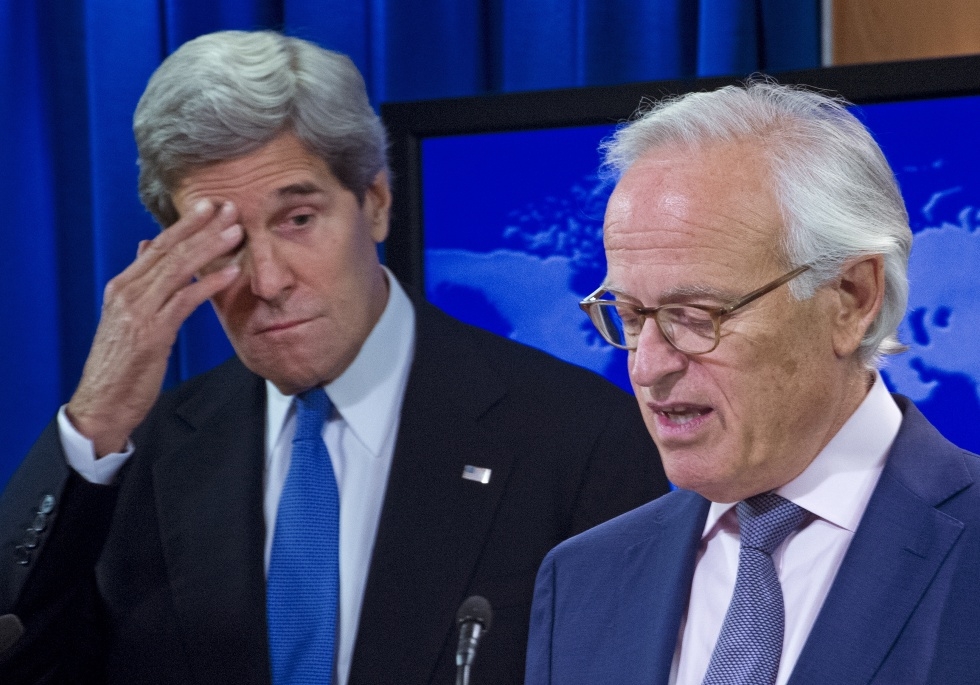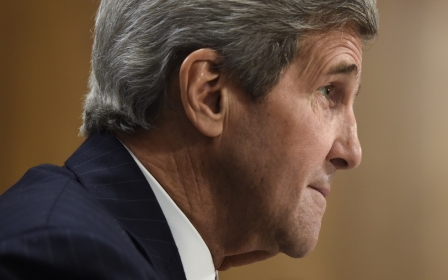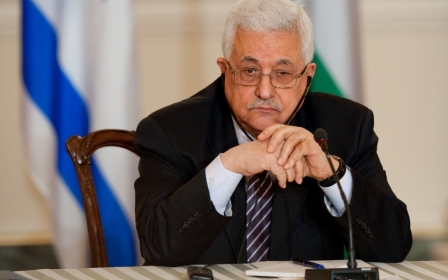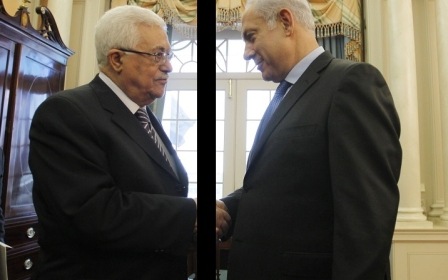Indyk in Jerusalem to revive 'dead' peace talks

John Kerry’s Middle East peace negotiator, Martin Indyk, is back in Jerusalem on a mission widely regarded as an attempt to “raise the dead”
The US state department made clear just how low expectations are when it said the measure of success will be whether or not Indyk can get the Israelis and Palestinians negotiating again. Less than two weeks before the deadline Kerry set for a framework peace deal the ambition has been stripped back to “talking about an agreement to extend the negotiations”. The first day of talks to extend talks on Thursday did not appear to go well. The Palestinians called them “very difficult”.
Yet Indyk returned to Jerusalem amid signs the ground may be shifting back in the US. Kerry’s singling out of Israel’s ceaseless settlement construction as a serious obstacle to talks - the secretary of state’s now famous “poof” comments - startled Binyamin Netanyahu who has long counted on Washington covering for Israel by refusing to assign blame where it belongs.
That was followed by the editorial board of the New York Times calling out Israeli “obstinacy”, accusing members of Netanyahu’s coalition of trying to sabotage talks and saying outright that two of the leading figures on the right, Naftali Bennett, the leader of the pro-settler party Jewish Home, and Uri Ariel, the housing minister, “don’t want peace”. The New York Times had criticisms of the Palestinians too but what stood out was the tone of the editorial and the weight of the critique of Netanyahu’s policies by a newspaper that has long been more than willing to give he benefit of the doubt to Israeli leaders.
Kerry’s finger pointing and the New York Times editorial may seem statements of the obvious when seen from the Middle East but they are views not very often heard from within the American establishment. US diplomats in Jerusalem may understand the reality only too well but they tread carefully in Washington where politicians of all stripes scramble over each other to declare their loyalty to Israel.
New MEE newsletter: Jerusalem Dispatch
Sign up to get the latest insights and analysis on Israel-Palestine, alongside Turkey Unpacked and other MEE newsletters
The New York Times went further and said it is time for the Obama administration "to lay down the principles it believes must undergird a two-state solution", namely a Palestinian state based on 1967 borders with a divided Jerusalem - both premises strongly rejected by Netanyahu. Then, the paper said, Obama and Kerry "should move on" and put the peace process on the back burner if it is going nowhere.
The state department swiftly rejected any such approach but the idea that well trodden diplomatic paths are a trap, doing little more than facilitating Israel to solidify its control over Jerusalem and creeping annexation of Palestinian territory, is shared by some in the administration.
Kerry sent Indyk back to Jerusalem because the Israeli and Palestinian leaders say they want to revive the talks. But diplomats in Washington say they cannot see what interest Netanyahu has in them succeeding. The Israeli prime minister and his coalition partners are more than content with the status quo of occupation, land grabs and settlement expansion.
The Palestinian president, Mahmoud Abbas, told members of the Israeli parliament this week that he’s prepared to extend negotiations for another nine months but only if the talks immediately deal with final borders and there is a halt to settlement construction, Israel’s principal weapon against a viable Palestinian state. Abbas also wants the most recent prisoner release which Israel reneged on to go ahead.
The Palestinian president also laid down a threat that if carried through would pull apart the status quo of occupation and deeply alarm the US. The Israeli MPs told Haaretz that Abbas said that if the talks fail completely he will consider collapsing the Palestinian Authority and tell Israel to “take the keys”.
“You don’t have to send tanks or use force,” he was quoted as saying. “Just send a junior officer, a second lieutenant, and we’ll give him the keys.”
A similar warning was made by Abbas's religious affairs minister, Mahmoud al-Habash, who told Haaretz that there is discussion within the Palestinian leadership about dissolving the PA because it is "a government that cannot govern".
The assumption in Washington and Europe has long been that the PA will keep going even though it serves as a tool of occupation because it supports such a large part of the Palestinian population through employment and services. Many ordinary Palestinians are torn. They don’t want the Israelis back running things but they increasingly talk of the PA as collaborating in frustrating their hopes of freedom.
Kerry’s unusual finger pointing at Israel and the New York Times editorial strengthen the hand of those within the administration who view US oversight of the peace process as two decades of perpetuating the occupation and enabling Israel to expand control over ever larger parts of the West Bank. Aaron David Miller, a former adviser on the Middle East to a succession of secretaries of state and a key player in President Bill Clinton's peace efforts, identified the problem nearly a decade ago when he called the US "Israel's lawyer”, saying Washington put the Jewish state's interests ahead of the peace process. The US, he said, is not an honest and effective broker.
When Obama first came to power, there were signals from the White House that he favoured giving Netanyahu a chance to get serious about peace, beginning with a halt to settlement expansion. But there was an expectation in policy circles that the president would need to follow through by laying out a blueprint for a final deal, including borders, land swaps and the carving up Jerusalem.
Confronted with Netanyahu's defiance and the threat of the pro-Israel lobby to rally Congress against the president, Obama decided it wasn't worth the fight. There's no sign he has changed his mind but it's also clear to some in the administration that Kerry himself has identified why the policy has to change.
-Chris McGreal is a former correspondent for the Guardian in Washington, Jerusalem and Johannesburg. He now reports from the US. He has won several awards including the Martha Gellhorn prize, the James Cameron award and Amnesty International press reporter of the year. McGreal is author of Chaplains of the Militia, an investigation of the Catholic church’s complicity in the Rwandan genocide (http://guardianshorts.co.uk/chaplainsofthemilitia/). He is working on a book about Israel and apartheid.
This views expressed in this article belong to the author and do not necessarily reflect the editorial policy of Middle East Eye.
Middle East Eye delivers independent and unrivalled coverage and analysis of the Middle East, North Africa and beyond. To learn more about republishing this content and the associated fees, please fill out this form. More about MEE can be found here.





